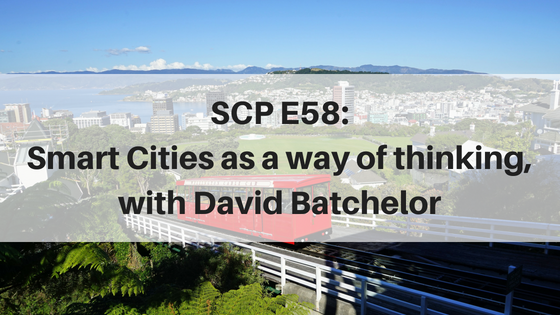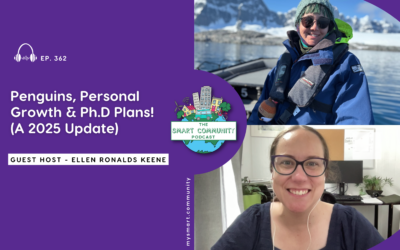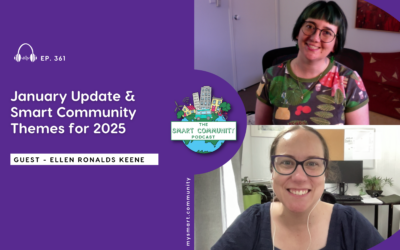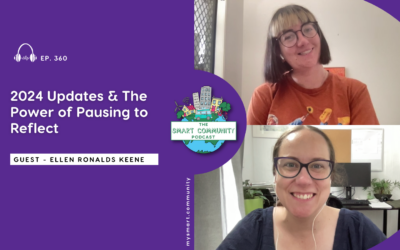In this episode of the Smart City Podcast, I had a fantastic conversation with David Batchelor, a planner ad history buff from Wellington, passionate about heritage and culture in our cities.
David tells us how New Zealand is currently embracing the Smart City concept and the importance of overall vision and strategy. He discusses some of the things that are happening in Wellington, particularly to do with resilience and tells us some really cool stuff about Smart heritage. We finish our conversation about public trust and the different types of feedback.
Disclaimer: Everything discussed is personal opinion only and does not represent any company or government agency.
Listen here:
Subscribe on Apple Podcasts, Google Podcasts or Spotify.
What we cover in this episode:
- David’s background in planning and his passion for heritage and culture in cities
- How he stumbled into the Smart City arena and why he thinks the concept is so important
- How David believes New Zealand is embracing the Smart City concept
- The pros and cons of Australia’s and New Zealand’s approaches to Smart Cities
- The Resilience Tool David is currently working on for the city of Wellington
- The varied and diverse backgrounds in the Smart City arena and why it’s more of a way of thinking than a sector
- The importance of understanding different perspectives in order to integrate across different disciplines
- Emerging trends and opportunities for local governments to use technology to enable real-time feedback loops and the nature of public trust
Quotes:
“I saw [Smart Cities] as a breath of fresh air into the area of consenting, of planning here in New Zealand, especially in heritage. A huge opportunity to improve what we’re doing and I think it’s really relevant for planning and heritage.”
“To me, a Smart City is a physical space that is effective in enabling its citizens to live within it, so that comes down to more of a social definition. Creating a great connected space for the people in it.”
“I’ve heard people in Wellington talk about their approach trying to become more natural. So, why have a policy? Why not just integrate it into what we already do? That’s great and doesn’t get caught up in the shopping list of IOT devices…However it lacks a political appetite in the direction that a policy or something higher up gives a sector.”
“We do have some fantastic people, especially in Wellington, who are pushing it along. They’re champions, without them, the [Smart City] sector would probably fall over.”
“[The Wellington Resilience Tool] tries to tell the story but also embed the data into the public thinking about safety…there’s a huge moral panic about [earthquake-readiness of heritage buildings], so we’re looking to show the story of how these buildings aren’t actually dangerous… so we can actually have a proper conversation about it.”
“The data scientists have a completely different approach to how planners or engineers or consultants or politicians think about it. The more I dig into it, the more I realise the Smart City sector might not be a sector, it’s more of a way of thinking.”
“I think [talking to people outside your discipline is] the best way to open your eyes, get your brain switched onto a different way of thinking, to approach the question of “how do we improve our city?” in a variety of ways, so you’re not just approaching it from your silo-ed engineer or planner bubble.”
“I think here’s a huge opportunity for local government to use social media or the internet …to engage better with the public.”
“Technology enables us to very quickly take the temperature or a snapshot of the public’s view…why doesn’t local council do that? There’s so many opportunities to have a dialogue with local government, which isn’t being grabbed with two hands.”
Connect:
Connect with David on LinkedIn
Connect with me via email: hello@mysmart.community
Connect with My Smart Community via LinkedIn or Twitter and watch on YouTube
Podcast Production by Perk Digital






0 Comments